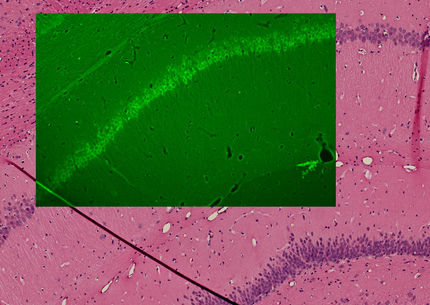Septic shock: nitric oxide beneficial after all
Advertisement
Scientists at VIB and Ghent University have found an unexpected ally for the treatment of septic shock, the major cause of death in intensive care units. By inducing the release of nitric oxide (NO) gas in mice with septic shock, researchers Anje Cauwels and Peter Brouckaert discovered that the animal’s organs showed much less damage, while their chances of survival increased significantly. That’s contrary to all expectations, since it is generally assumed that nitric oxide is responsible for the potentially lethal drop in blood pressure in septic shock.
Septic shock, or sepsis, is a medical condition in which acute inflammation, low blood pressure, and blood clotting cause a dangerous decrease in the delivery of blood to the organs. Because of the lack of oxygen, the patient’s organs start to fail, one after the other. Currently, only supportive treatment is available.
It is generally assumed that nitric oxide (NO) gas is responsible for the hypotension and cardiovascular collapse in septic shock. Therefore, a lot of medical research is focused on combating NO, which is also a messenger molecule in the body. Attempts to inhibit its production paradoxically led to a worsening of the organ damage and in an increased lethality, both in animal models and in a clinical trial in sepsis patients. This led to the assumption that NO also has positive effects in sepsis, but up to now NO remained a prime suspect for the pathogenesis of the cardiovascular shock.
The team in Ghent is turning this paradigm upside-down in an article in The Journal of Experimental Medicine. During their research, Cauwels and Brouckaert administered nitrite to mice with septic shock. The nitrite treatment, in sharp contrast with the worsening effect of inhibiting NO-synthesis, significantly attenuates hypothermia, mitochondrial damage, oxidative stress and dysfunction, tissue infarction, and mortality in mice. It is not yet known what mechanisms are at work behind this observation. That will be the subject of further research.
For now, not only is this discovery revolutionizing the way in which scientists view nitric oxide’s role in septic shock - it also opens possibilities for treatment. Instead of trying to prevent the effects of NO, they should rather be imitated or reinforced to provide a solution for saving organs or particular parts of the body where there is a lack of oxygen due to septic shock.
Other news from the department science

Get the life science industry in your inbox
By submitting this form you agree that LUMITOS AG will send you the newsletter(s) selected above by email. Your data will not be passed on to third parties. Your data will be stored and processed in accordance with our data protection regulations. LUMITOS may contact you by email for the purpose of advertising or market and opinion surveys. You can revoke your consent at any time without giving reasons to LUMITOS AG, Ernst-Augustin-Str. 2, 12489 Berlin, Germany or by e-mail at revoke@lumitos.com with effect for the future. In addition, each email contains a link to unsubscribe from the corresponding newsletter.


























































